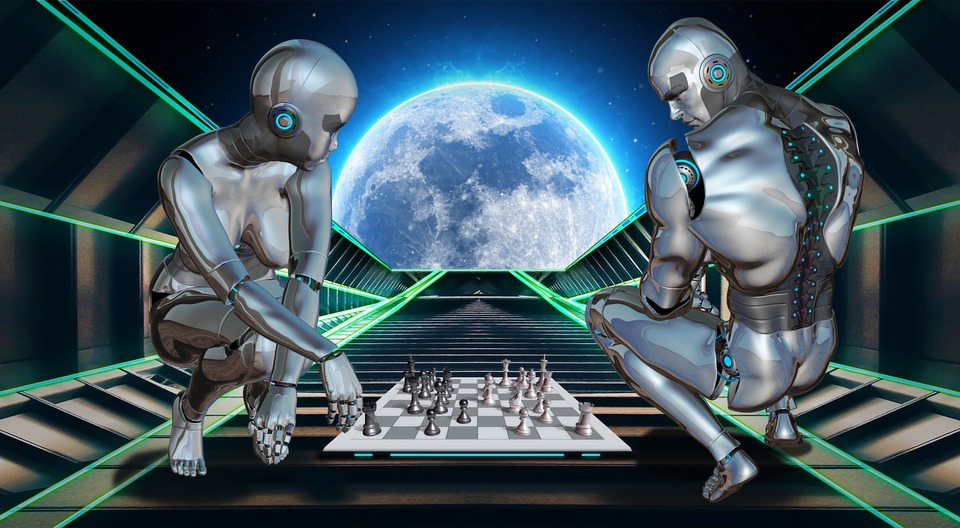Artificial Intelligence (AI) has revolutionized chess over recent years. Thanks to advanced computer algorithms, powerful computer-playing programs now pose formidable threats against even skilled human players – this article examines their complex relationship and how AI has revolutionized how we play and learn chess.
The Impact of AI on Chess
Gone are the days when humans were sole masters of chess; with advances in AI algorithms and deep learning techniques, computers have made remarkable strides towards playing at an exceptional level – beating world champions while providing invaluable tools for studying and analyzing chess games like Stockfish and AlphaZero engines.
Online Chess Classes and Courses
AI in chess has dramatically transformed not only professional chess players but also children learning the game for themselves. Online classes and courses have quickly gained immense popularity among children looking to develop their chess skills; using AI-powered algorithms that offer personalized training tailored specifically to each student level and provide insightful feedback for future improvement.
Through online chess courses, children can now benefit from experienced instructors, interactive lessons, and practice matches with students from around the globe. Many platforms employ AI technology to assess each student’s performance, identify areas of weakness and recommend tailor-made training exercises tailored specifically to them. AI and online chess courses have made learning this ancient game engaging, efficient, and enjoyable for young players.
Here’s an overview of the rise of computers in chess and their influence:
- Early Computer Chess: Computer chess was initially pioneered in the 1950s with early attempts at programming capable of playing chess. These early programs had limited abilities and couldn’t match skilled human players.
- Deep Blue Vs. Garry Kasparov: One of the seminal moments in chess and AI history occurred during 1997’s match between IBM’s Deep Blue supercomputer and world chess champion Garry Kasparov, with Deep Blue becoming the first computer to defeat him in classical chess competition. Deep Blue became the first computer to defeat any reigning world chess champion.
- Advances in Chess Engines: Since Deep Blue’s victory, there has been rapid development of chess engines – programs which analyze chess positions and select appropriate moves – using complex algorithms and search techniques that evaluate millions of positions per second.
- Freestyle Chess: Another significant development was the advent of freestyle chess, where human players are permitted to use computer assistance during gameplay. This format highlighted the power of human-computer collaboration as teams comprised of both humans and computers consistently outperformed both individual humans or computers alone in performance terms.
FAQs about Chess and Artificial Intelligence:
Are AI algorithms capable of making human chess unbeatable for machines?
While AI has reached unprecedented levels of chess play, humans still possess enough strategic knowledge and creativity to overcome AI programs in longer time controls where strategic understanding plays an essential part in the victory.
Can AI assist in the analysis of chess games?
powered chess engines offer in-depth analysis of games, pinpointing both tactical errors and strategic gaps. Furthermore, these engines offer insight into alternative moves, evaluate positions accurately, and aid players in understanding the complexity of chess better.
Are online chess classes appropriate for beginner players?
Absolutely! Online chess classes provide classes for players of all skill levels – beginners included! Courses generally begin by covering basic rules, piece movements, and strategies before gradually progressing toward more complex ideas.
also read- DISCOVER THE BEST SITE FOR ONLINE PUBLIC SPEAKING TRAINING:
Can artificial intelligence assist children in honing their chess skills?
A4: AI algorithms incorporated into online chess platforms can significantly assist children in honing their chess skills. Their adaptive nature enables AI to provide personalized training, analyze games and offer targeted exercises tailored specifically for young learners.
AI integration into chess has had a dramatic effect on its playing and learning process. Chess engines, online chess classes and courses, and AI as a guiding force have opened new avenues for all age groups including children. AI-powered tools and resources will continue to enhance your chess journey whether you are a new or experienced player alike.

